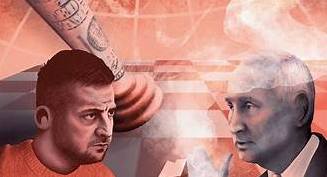With war in Ukraine and China’s Belt and Road project faltering, the era of open commerce is over. Who will dominate the deglobalised world?
Evidence of deglobalisation can’t be found in trade statistics, but it’s visible in places like Duisburg, Germany. In the early 2010s, China selected Duisburg as a key hub for its Belt and Road initiative, which aimed to create an extensive global network of roads, railways, and shipping routes. Duisburg’s strategic location, with the world’s largest inland river port, made it an ideal western European base. In 2011, the first China-Europe Railway Express train arrived in Duisburg from Chongqing, China, via Russia and Belarus, marking a milestone in the ambitious project.
However, the landscape has drastically shifted since then, influenced by the Covid-19 pandemic and the ongoing war in Ukraine. Sanctions against Russia made rail traffic too costly to insure, and the economic uncertainties of the war disrupted global trade. While Belt and Road once represented China’s version of globalisation, the project has faltered, symbolising the disconnect between the expectations of China and Germany a decade ago and the present reality.
European countries, pressured by the United States, have reevaluated their relationship with China, leading to a shift in their global trade strategies. In Duisburg, Cosco, the Chinese port operator, sold its shares in the port terminal, a reflection of the broader decline in Chinese investment in the region. This shift signals a break from the hopes that many had placed in the interconnected, globalised world that seemed inevitable just a few years ago.
The failure of several Belt and Road projects highlights the changing geopolitical landscape. What was once viewed as a thriving partnership between China and Europe now faces new challenges. The current global environment, shaped by factors like the war in Ukraine, rising tensions with China, and the lasting impacts of the pandemic, underscores the end of an era of open commerce.
As globalisation continues to retreat, the question of who will dominate the future deglobalised world remains unanswered. With supply chains fragmenting and alliances shifting, countries will need to rethink their strategies for economic growth and influence. The decline of projects like the Belt and Road reflects a broader trend, where the interconnected world we once knew is giving way to a new, uncertain geopolitical order.

